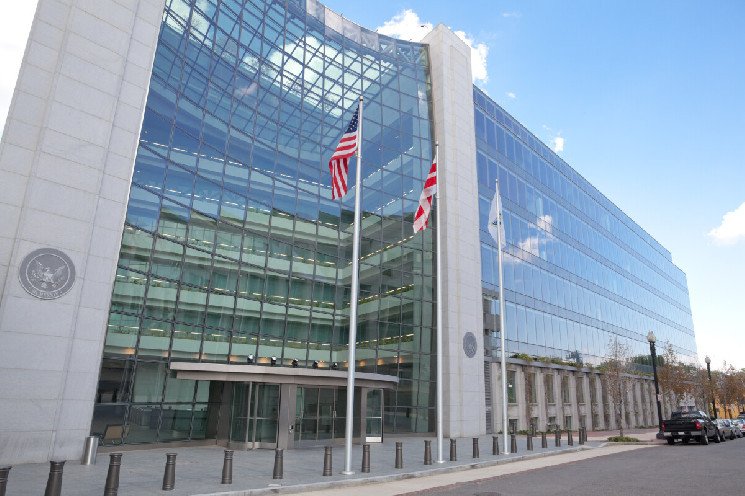The US Securities and Exchange Commission (SEC)’s push to force the crypto industry into “regulatory compliance” via enforcement action continues, with bankrupt crypto exchange Bittrex the latest to fall foul of the agency.
Bittrex just agreed to pay a $24 million fine to the SEC, after the agency accused the exchange of operating as an unregistered securities exchange back in April.
As per a court document detailing the terms of the settlement, Bittrex reportedly did not admit or deny the allegations made against it by the SEC.
Bittrex filed for Chapter 11 bankruptcy back in May with $500 million in assets and $1 billion in liabilities on its books.
Bittrex the Latest Victim of SEC’s Accelerating Enforcement Push
Bittrex is one of numerous exchanges and crypto firms operating (or formerly operating) in the US that have been targeted by the SEC over allegedly operating as unregistered securities exchanges.
Kraken was forced to shutter its crypto staking services in the US and pay a $30 million as part of a similar settlement with the SEC in early 2023.
Stablecoin firm Paxos was forced to stop issuing the Binance USD (BUSD) stablecoin when the SEC went after it claiming that BUSD is an unregistered security.
The SEC has also launched enforcement actions against Coinbase and Binance over operating as unregistered securities exchanges in the US, while it has also accused Binance of more concerning charges relating to mismanagement and the co-mingling of customer funds.
The SEC’s more aggressive approach towards crypto regulation comes after a series of high-profile crypto catastrophes in 2022, which include the collapse of the Terra ecosystem and FTX.
FTX was known for having cozied up fairly close to a lot of US politicians and regulators, with some theorizing that the SEC (and broader US government) are on a revenge mission against the crypto industry having been “duped” by former FTX CEO and apparent fraudster Sam Bankman-Fried.
Everything a Security Aside From Bitcoin, Thinks Gensler
For what its worth, Gary Gensler, the SEC Chairman, has openly stated that he views nearly all cryptocurrencies as securities aside from Bitcoin.
As part of its lawsuits against Coinbase and Binance, the SEC has openly expressed its view that BNB, Binance USD (BUSD), Solana (SOL), Cardano (ADA), Polygon (MATIC), Filecoin (FIL), Cosmos (ATOM), The Sandbox (SAND), Decentraland (MANA), Axie Infinity Shards (AXS), Coti Network (COTI) and dozens more are all securities.
The SEC has also labeled XRP as an unregistered security and has been in a lawsuit with Ripple (XRP’s creator) since December 2020, though momentum appears to be in Ripple's favor in wake of a recent court ruling.
SEC Stifling US Crypto Industry, No Help From Congress In Sight
Critics argue the SEC’s aggressive stance against much of the US crypto industry is stifling investment and innovation in the space, and forcing the industry overseas to friendly jurisdictions, such as the UAE or UK.
And the US Congress isn’t helping much.
A Republican-sponsored bill that would govern rules for those who want to issue USD-pegged stablecoins in the US recently made it out of the House Committee on Financial Services, setting up a potential vote on the floor, but a lack of bipartisan agreement means its still unlikely to make it through Congress and secure the President’s signature.
Broader crypto legislation, while in the works following bipartisan efforts from Cynthia Lummis (a Republican) and Kirsten Gillibrand (a Democrat), also still seems a long way off.
2024 Could Be a Big Year For Regulatory Developments
2024 could be a big year for the US crypto regulatory landscape.
Perhaps that might be the year we finally see Congress getting some crypto legislation through.
Perhaps there might be significant progress towards a decisive outcome in the SEC’s lawsuits versus major exchanges like Coinbase and Binance.
The SEC is also expected to decide whether or not to approve recently filed spot bitcoin ETF applications from Wall Street heavyweights like BlackRock and Vanguard.
The agency doesn’t normally say no to these asset management behemoths, and despite having refused all spot bitcoin ETF applications up until now, could be won over by proposal market surveillance mechanisms built into these ETF applications.
 cryptonews.com
cryptonews.com
